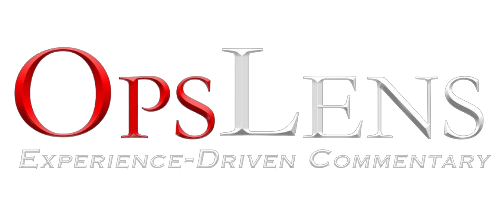“Not only does such staunch resistance run the risk of drawing the ire of mainstream Republicans and the White House, but such uncompromising politics could hold back conservative reform…”
The election of Donald Trump hinted at a growing rift within the Grand Old Party between “establishment” Republicans and a growing populist movement. This rift has been emerging for years, but it appears to have finally come to a head with the election of President Trump, who represents a stark break from the traditional GOP mindset. The differences between Trump’s populism and the GOP’s standard conservatism can now be seen in the unfolding battle over the border adjustability tax.
President Trump and House Speaker Paul Ryan are both pushing for a “border adjustability tax.” The powerful and immensely wealthy Koch brothers, meanwhile, are aiming to torpedo the measure, setting the stage for the most recent Trump Vs. Koch battle. Trump’s populist appeals have often been in stark contrast to the more libertarian, pro-business platform of the Koch brothers, which is exacerbating the growing rift within the GOP.
The BAT and How It Works
So what is the border adjustability tax (BAT), and how would it work? Right now, companies can essentially write off the cost of imported goods but must pay a tax on overseas profits. The BAT would eliminate the deduction for imports, which would result in a 20% surcharge. At the same time, however, companies would receive breaks on their overseas earnings. Revenues raised by the BAT would also allow the government to slash corporate income taxes.
Koch Brothers Pushing Back
The Koch Brothers fund a vast network of conservative groups to push their agenda and have proven willing to spend hundreds of millions of dollars to pursue their goals. During the 2016 presidential election, the brothers largely stayed out of presidential politics once it became obvious that Trump would win and focused on Congress and local races.
Now the Koch brothers are using this vast network to push ads to try and sink the BAT. You can check out one of their ads below:
https://www.youtube.com/watch?v=VtuFqpnuFh0
This tactic carries with it many risks. The Koch brothers were already vital in sinking the Obamacare repeal. They encouraged, supported, and pressured Congressional members of the Freedom Caucus to reject the Republican alternative to Obamacare, arguing that it did not go far enough in getting government out of health care.
Not only does such staunch resistance run the risk of drawing the ire of mainstream Republicans and the White House, but such uncompromising politics could hold back conservative reform. The Koch Brothers torpedoing the BAT tax could likewise result in a collapse of tax reform altogether.
Difference Between Koch and Trump Tax Policies
The Koch Brothers aren’t out to “Make America Great Again.” Trump’s policy platform seems to have a nationalist angle to it (whether you agree that’s a good thing or not is a separate issue), and the president is pushing for “pro-American” policies. The Koch Brothers, on the other hand, simply want to pay less in taxes.
Just like President Trump, the Koch’s want to see taxes lowered. But only lowered. They aren’t going to be looking to pay any increased taxes on anything. This is essential, because the BAT would basically reward companies for doing business domestically but punish them for importing. By eliminating write-offs for imports, companies would be encouraged to do business with American firms.
The BAT tax would thus remove the incentive for companies to use imports. For businesses that import materials from abroad, this will raise costs. For companies that produce at home, this will lower costs. Meanwhile, companies that export products and services won’t have to pay taxes on their earnings abroad. The United States both has some of the highest corporate income taxes and also the highest taxes on overseas activities.
Brian Brinker is an OpsLens Contributor and political consultant. Brinker has an M.A in Global Affairs from American University.
